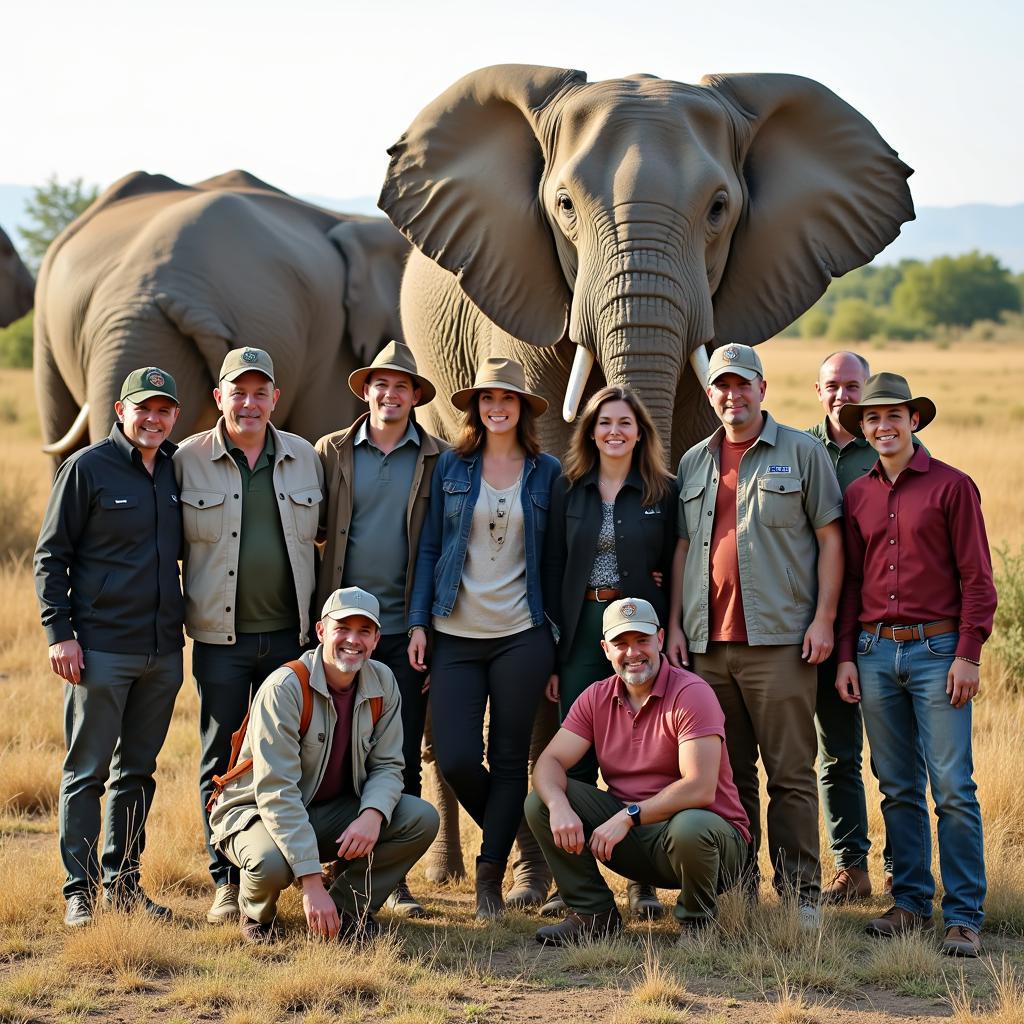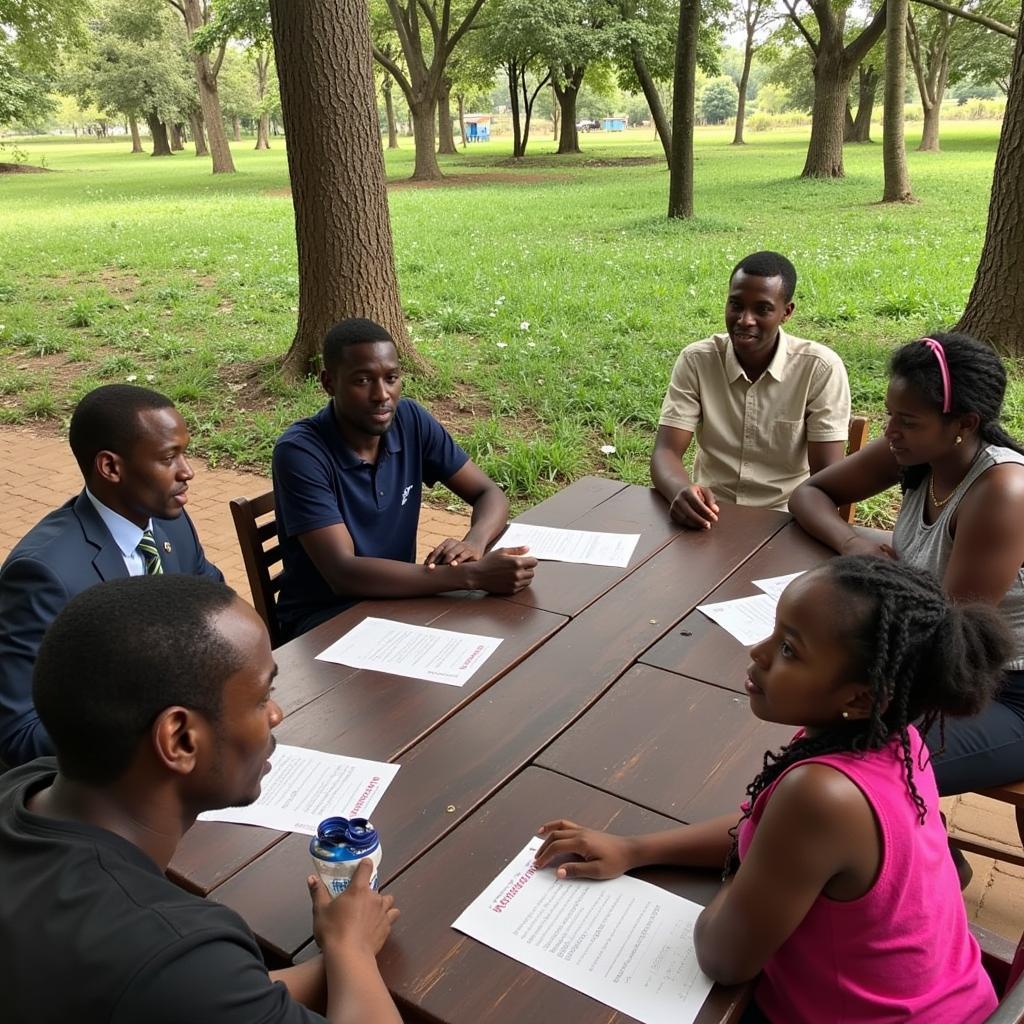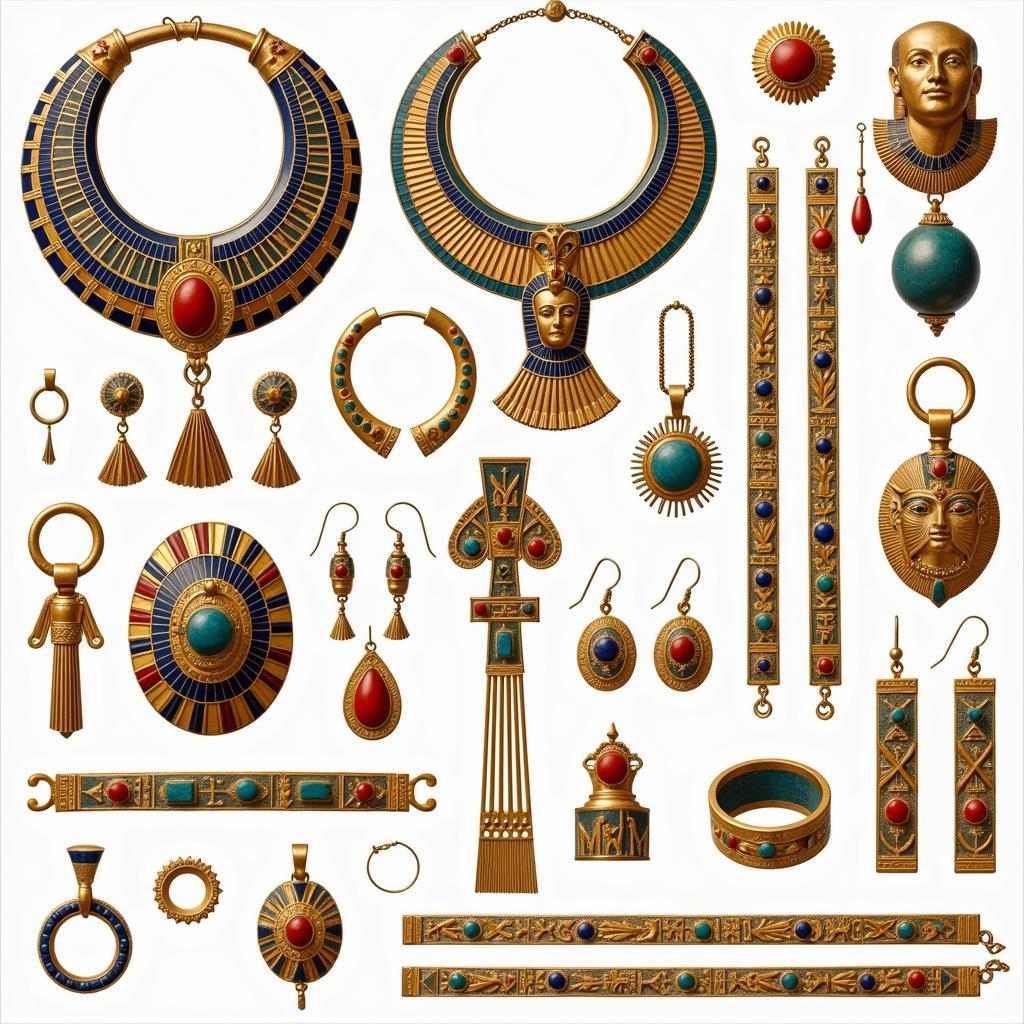African Conservation Foundation Reviews: A Deep Dive into Protecting Africa’s Wildlife
African conservation efforts are multifaceted and crucial for the planet’s well-being. The African Conservation Foundation (ACF) is one organization at the forefront of this fight. But what do others say about their work? This article delves into African Conservation Foundation Reviews, exploring their impact, initiatives, and what people are saying about their contributions to safeguarding Africa’s natural heritage.
 African Conservation Foundation's impactful wildlife protection programs
African Conservation Foundation's impactful wildlife protection programs
Understanding the African Conservation Foundation
The African Conservation Foundation (ACF) is a non-profit organization dedicated to protecting Africa’s incredible biodiversity. Founded on the principle of community-based conservation, ACF believes that local communities are vital to preserving wildlife. They work directly with these communities, empowering them to manage their natural resources sustainably.
Their work spans across various countries, focusing on:
- Anti-Poaching: ACF actively combats the illegal wildlife trade by training rangers, implementing innovative anti-poaching technologies, and raising awareness within communities.
- Habitat Restoration: Through reforestation projects and sustainable land management practices, ACF aims to restore degraded habitats crucial for various species.
- Community Development: Recognizing the link between poverty and environmental degradation, ACF implements programs to improve livelihoods, promote education, and provide alternative income sources that reduce pressure on wildlife.
 African Conservation Foundation's commitment to community engagement
African Conservation Foundation's commitment to community engagement
African Conservation Foundation Reviews: What are People Saying?
ACF has garnered both praise and critique for its approach. Let’s analyze some prevailing themes:
Positive Reviews:
- Tangible Impact: Many commend ACF’s transparency and demonstrable results. Their website and annual reports showcase successful anti-poaching operations, habitat restoration progress, and positive impacts on local communities.
- Community-Centric Approach: A significant portion of positive feedback highlights ACF’s dedication to working directly with local people. This collaborative approach resonates with many who believe that sustainable conservation hinges on empowering those closest to the resources.
- Transparency and Accountability: Donors and supporters appreciate ACF’s commitment to transparency. They provide detailed information about their financials, project updates, and impact assessments, fostering trust and confidence in their operations.
Areas for Improvement:
- Geographic Focus: Some reviews point out that while ACF works across various countries, their efforts may be more concentrated in certain regions, leaving other areas potentially underserved.
- Funding Challenges: As with many non-profits, securing consistent funding remains a challenge. Some reviews suggest that ACF could benefit from diversifying funding sources to ensure program continuity.
- Long-Term Sustainability: While ACF’s community-based approach is lauded, some critiques emphasize the need for robust strategies ensuring the long-term sustainability of these programs, even after ACF’s direct involvement phases out.
Evaluating African Conservation Organizations: Key Factors
When researching any conservation organization, considering a few factors is essential:
- Transparency: Do they openly share financial information, project updates, and impact assessments?
- Approach: Do they prioritize community involvement and sustainable practices?
- Impact: Is there evidence of tangible results and positive change from their efforts?
- Accountability: Do they have mechanisms for monitoring and evaluating their programs?
Conclusion
African Conservation Foundation reviews reveal a dedicated organization actively working to protect Africa’s natural heritage. Their community-based approach, coupled with a commitment to transparency and tangible results, resonates with many. However, like any organization, there are areas for continued growth, including a potentially broader geographic reach and long-term program sustainability. When evaluating any conservation organization, remember to consider their transparency, approach, impact, and accountability to make informed decisions about supporting their mission.
FAQs about African Conservation Foundation
1. How can I support the African Conservation Foundation?
You can support ACF through donations, volunteering, or spreading awareness about their work. Visit their website or contact them directly to explore the best way to contribute.
2. Does the ACF work with other organizations?
Yes, ACF collaborates with local and international organizations to maximize their impact and leverage expertise in specific areas.
3. What is the ACF’s stance on trophy hunting?
ACF firmly opposes trophy hunting and believes in protecting wildlife through ethical and sustainable conservation practices.
4. Are there opportunities to volunteer with ACF in Africa?
Yes, ACF offers various volunteer opportunities, ranging from field research to community outreach. Check their website for current openings and application procedures.
5. How does ACF measure the success of its programs?
ACF utilizes a comprehensive monitoring and evaluation framework that tracks key indicators such as wildlife population trends, habitat health, and community well-being to assess the effectiveness of their interventions.
Need More Information?
For any further questions or support requests, please don’t hesitate to contact us:
Phone Number: +255768904061
Email: kaka.mag@gmail.com
Address: Mbarali DC Mawindi, Kangaga, Tanzania
Our dedicated customer support team is available 24/7 to assist you.


